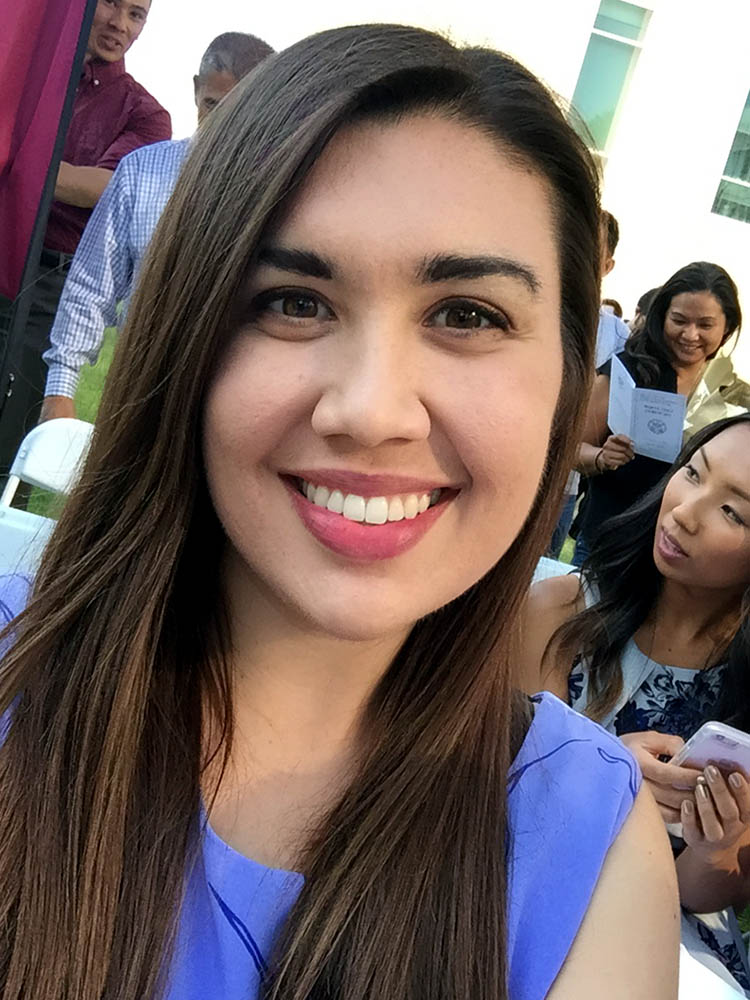OTAC 2017: Interview with student presenter Ranier Barrett MA ’18
October 19, 2017
More than 80 Trojan faculty members, students and alumni are presenting during the 2017 conference of the Occupational Therapy Association of California, including master's degree student Ranier Barrett MA ’18; Student Ambassador Erika Lim MA ’18 spoke with Barrett about her experience preparing for her first professional conference presentation, titled "Occupational Justice in Relation to Youth in Juvenile Hall"
Associations and Bodies Clinical Diversity, Access, Equity Faculty Health and Wellness Students
Congratulations on being a presenter at OTAC! How are you feeling about presenting?
I oscillate between elation and apprehension. Hailing from an undergraduate performance background, I’m looking forward to the presentation part; I’m more nervous about one-on-one discussions with the attendees afterwards. Occupational justice for the juvenile population is close to my heart and I hope the passion will translate and convince others to become involved in helping incarcerated children.
Tell us about what you will be presenting on — why is “Occupational Justice in Relation to Youth in Juvenile Hall” an important topic?
A year ago, master’s student Meenadchi Gunanayagam MA ’17 sent out a message for anyone who wanted to go into the juvenile hall across the street [from USC’s Center for the Health Professions building] and help incarcerated children. Of the 200 people she asked, two said yes. She spearheaded the program that I am currently continuing in the unit for Regional Center kids. They have been diagnosed with conditions ranging from Autism Spectrum Disorder to intellectual disabilities or epilepsy. Incarcerated kids are the ones that many people say are “lost causes,” and bringing that awareness is important. Their plight is only compounded by any type of medical diagnosis.
Occupational therapy was founded by a group of people that went into asylums to try and help “lost causes” who, like these kids, were disempowered and had little resources. Occupational therapy can have an important and positive presence in correctional institutions, and I believe that it can help these kids avoid the progression into the corrections industrial complex system from juvenile detention to county jail and on to state prison.
What does presenting at OTAC mean to you and what do you hope to achieve?
It’s an absolute honor, and I’m truly humbled that I was selected to present! The prison population is statistically skewed towards more minorities being incarcerated, be it racial, socio-economic or sexual orientation minorities. What I’m hoping to do is induce empathy and action for kids in juvenile halls across California and the country.
How have USC faculty members supported you throughout the process of submitting your proposal and preparing to present at OTAC?
To begin with, it is inspiring how involved the faculty is with submitting to conferences and keeping up-to-date with professional membership and advocacy. It really began my first summer at USC when I told Dr. Samia Rafeedie that I wanted to get more involved in membership and we shared this moment where I told her I was going to present in a year, and she said, “Great, now make it happen!” Dr. Karrie Kingsley has also been a guiding light and the faculty advisor for the juvenile hall program, as without her we’d have no program to base our OTAC proposal on, so I need to pay her credit as well. She’s been helpful and supportive of the whole process. There are many other faculty members that have supported me in countless other ways and I owe them so much gratitude!
⋯






